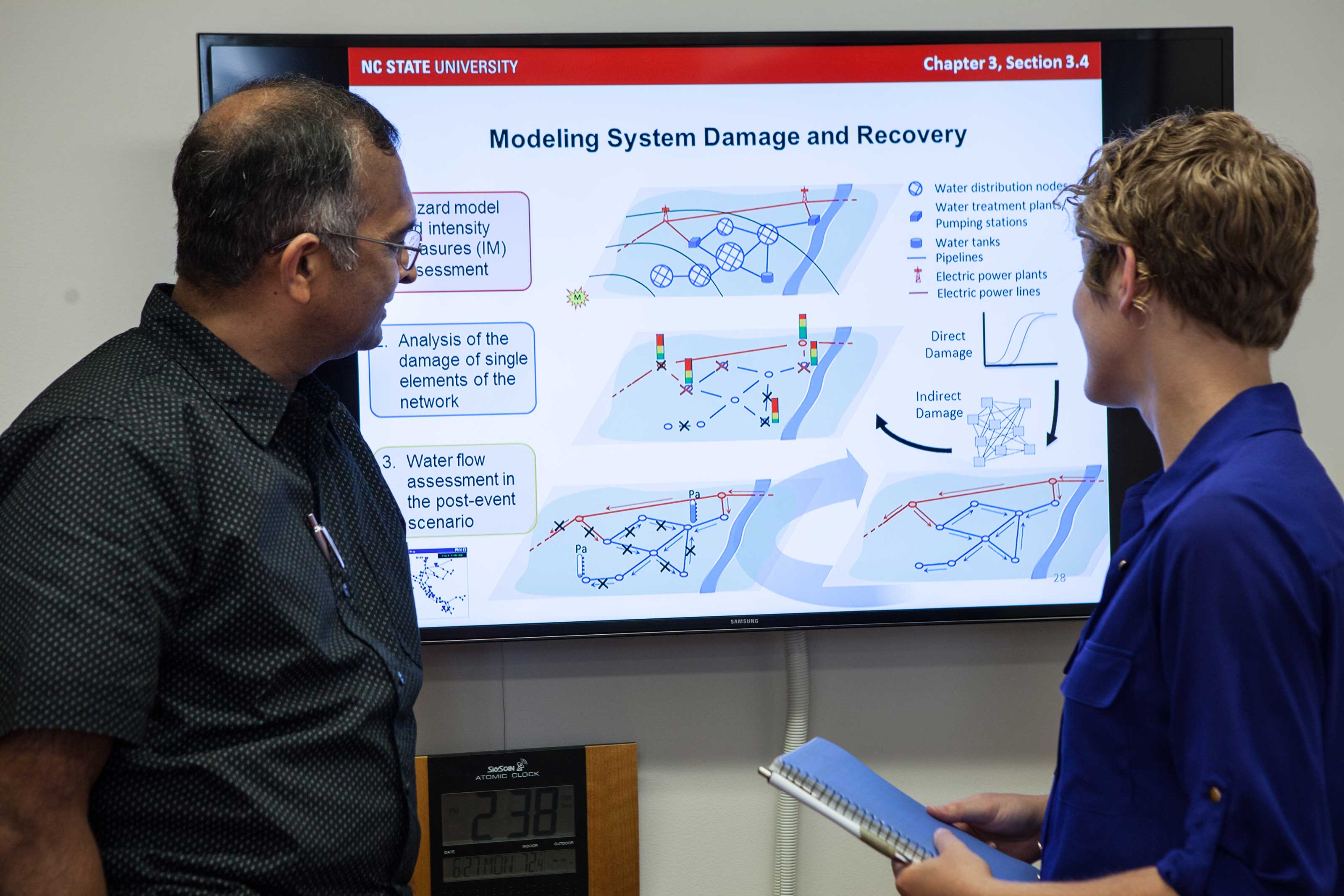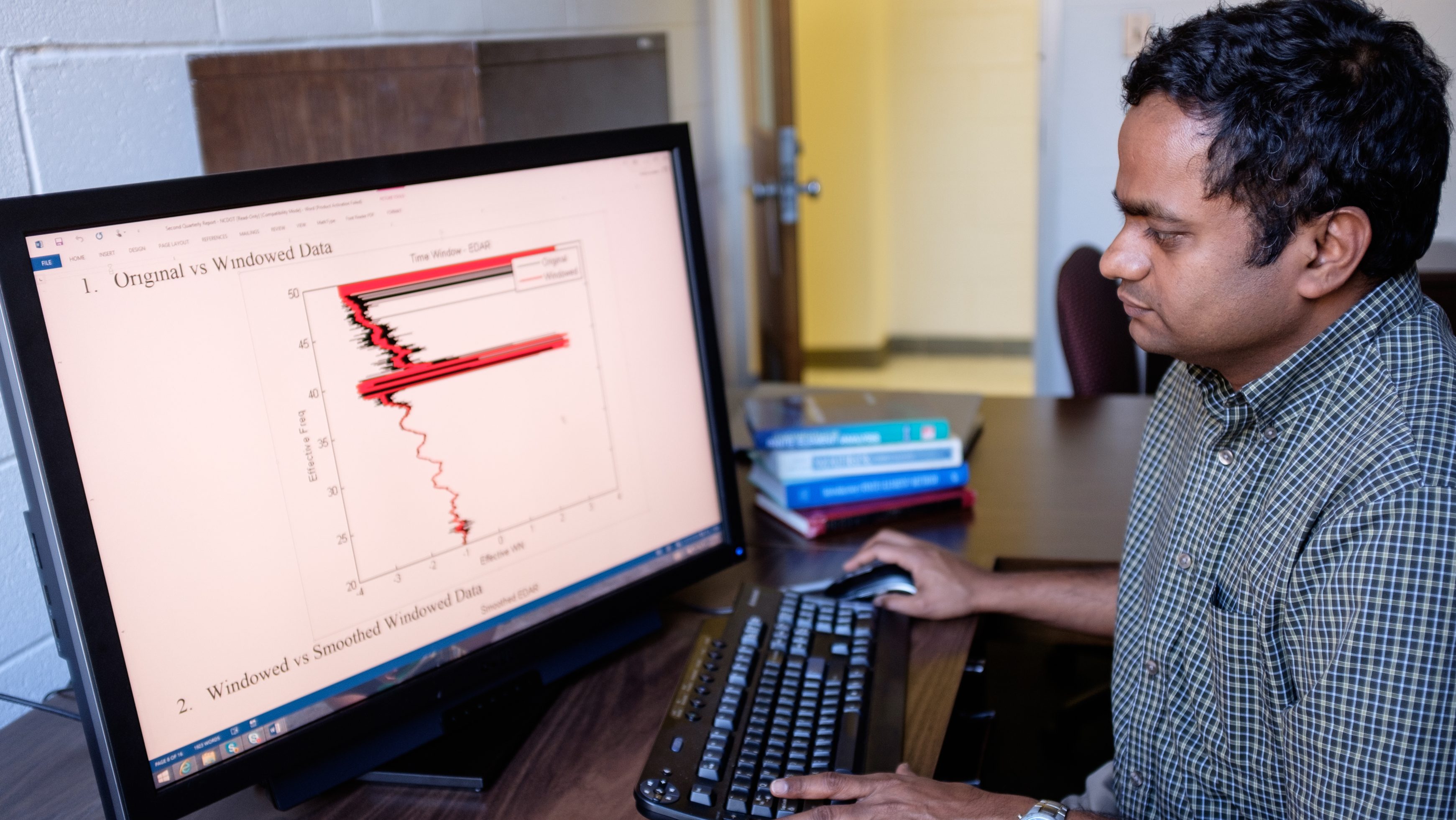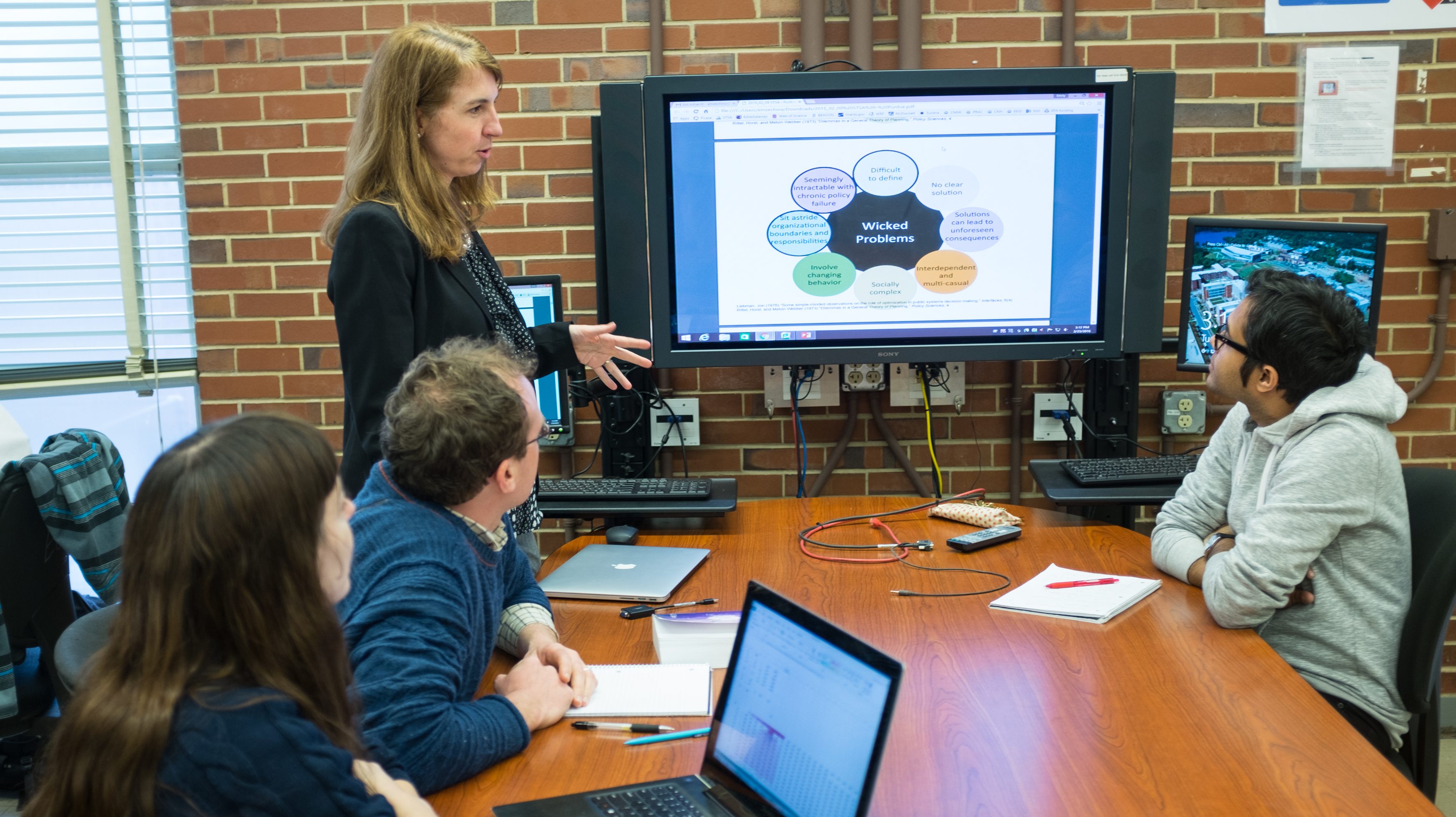Computing, A.I. and Systems
Computing, Artificial Intelligence and Systems is a formal interdisciplinary program with faculty addressing problems throughout civil and environmental engineering. We offer a suite of graduate and undergraduate courses including civil engineering systems, computer methods and applications, artificial intelligence, numerical methods, high-performance computing, evolutionary computation, stochastic modeling, complex adaptive systems, information technology and modeling, and inverse modeling. Our graduates pursue careers at traditional firms, government agencies, national laboratories, and universities, as well as at companies such as SAS, Cisco, IBM, Microsoft, GE, and Intel.
Explore Our Focus Areas

Systems and Optimization

High-Performance Computing

Numerical Methods

Software Engineering
Faculty
| Faculty | Research Specialties |
| Sankar Arumugam | Stochastic methods, Hydroclimatology, Water Resources |
| John Baugh | Software Design, Formal Methods, Scientific Computing, Cyber-Physical Systems |
| Emily Berglund | Complex Systems Analysis, Systems and Optimization, Water Systems Analysis |
| Joseph DeCarolis | Systems and Optimization, Energy Systems Analysis, Uncertainty Analysis |
| Casey Dietrich | Coastal Hydrodynamics, Large-Scale Modeling of Coastal Hazards, Finite elements, High-Performance Computing |
| Fernando Garcia | Complex Systems Analysis, Systems, and Optimization, Water Systems Analysis |
| Murthy Guddati | Computational Mechanics, Inverse Modeling and Optimization, Wave Propagation |
| Ali Hajbabaie | Traffic Engineering, Advanced Traffic Control, Traffic Flow Theory, Traffic Operations |
| Kevin Han | Construction automation and robotics |
| Marc Hoit | Complex Systems Analysis, Systems, and Optimization, Water Systems Analysis |
| Jeremiah Johnson | Structural optimization, Numerical methods, High-performance computing |
| Kumar Mahinthakumar | High-Performance Computing, Numerical methods, Water Systems Analysis, Groundwater modeling |
| Dan Obenour | Stochastic methods, Water quality modeling, Geospatial modeling |
| Ranji Ranjithan | Structural optimization, Numerical methods, High-performance computing |
C & S Introductory Video
Related Courses
| Course | Course Number | Credits | Current and Planned Offerings* | |
|---|---|---|---|---|
| Fall | Spring | |||
| Introduction to Numerical Methods for Civil Engineers | CE 536 | 3 | ||
| Computer Methods and Applications | CE 537 | 3 | ||
| Information Technology and Modeling | CE 538 | 3 | ||
| Special Topics in Civil Engineering: Modeling & Analysis of Civil Eng. Systems | CE 590 | 3 | ||
| Special Topics in Civil Engineering Computing | CE 591 | 3 | ||
| Special Topics in Civil Engineering Computing: Design of a Robotic Computer Vision System for Autonomous Navigation | CE/CSC/ECE 592 | 3 | ||
| Advanced Topics in Civil Engineering Computing | CE 791 | 1-3 | ||
| High-Performance Computer Modeling | CE 791A | 3 | ||
| Evolutionary Computation | CE 791B | 3 | ||
| Inverse Modeling | CE 791C | 3 | ||
| Advanced Methods for Systems Analysis | CE 791D | 3 | ||
| Modeling Analysis of Environmental Systems | CE 775 | 3 | ||
| Advanced Water Management Systems | CE 776 | 3 | ||
| Stochastic Methods in Water and Environmental Engineering | CE 796 | 3 | ||
| Probabilistic Methods of Structural Engineering | CE 724 | 3 | ||
| Matrix and Finite Element Structural Analysis | CE 721 | 3 | ||
Facilities and Centers

- High-Performance Computing Laboratory (CCEE-HPCL)
- Virtual Computing Laboratory (VCL)
- Computing and Systems Collaboratory (CSC)
Graduate Course Requirements
The Master of Science (MS) degree requires a minimum of 30 semester hours of graduate study including up to 6 credit hours for a thesis and a final oral examination. The Master of Civil Engineering (MCE) degree requires a minimum of 30 semester hours of graduate study without a thesis. The MS and MCE degrees require 15 and 18 credit hours in civil engineering courses respectively, of which 6 hours must be taken from a set of core courses in computing and systems. For more details check out the advising documents below.
MS degree program in Computing, AI and Systems (advising document)
MCE degree program in Computing, AI and Systems (advising document)
The Doctor of Philosophy (PhD) degree requires 54 credit hours of thesis or course work for students with a prior MS degree or 72 credit hours otherwise. The major component of the Ph.D. program is the preparation of a dissertation reporting the results of an original investigation that represents a significant contribution to knowledge. For the Ph.D. degree, consult with your advisor for appropriate courses.